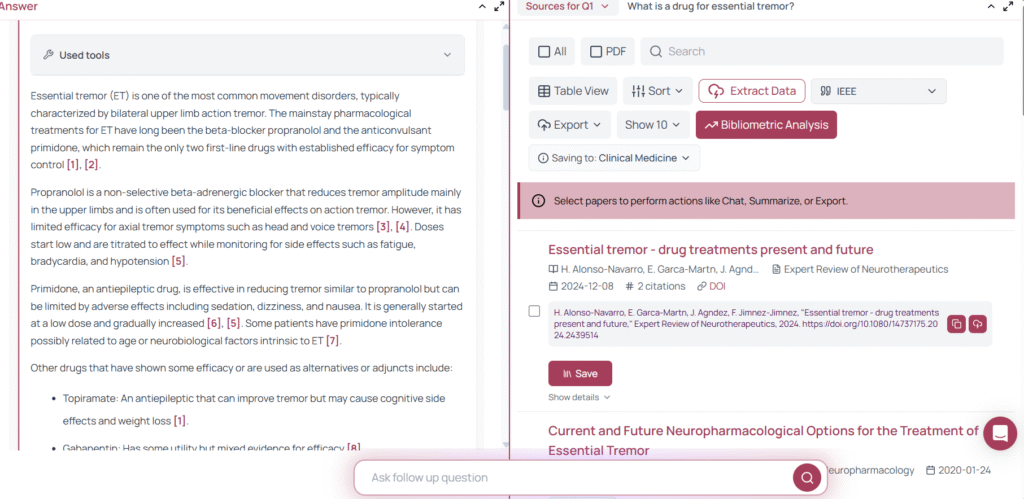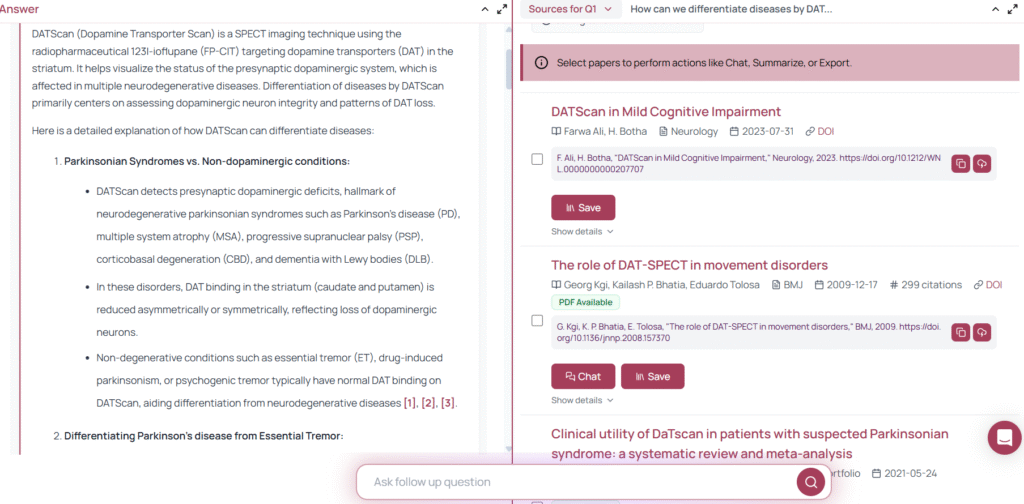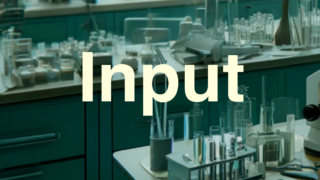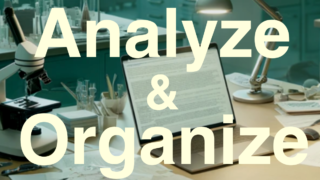This article contains affiliate links.
This article is aimed more at healthcare professionals rather than researchers. In daily clinical practice, questions often arise such as "What's the latest evidence for this treatment?" However, it's difficult to find time for thorough literature searches during outpatient clinics or ward rounds.
Today, I'm introducing AnswerThis, an AI-powered literature search tool. While I've mentioned it before, this time I'll provide a detailed explanation of how it can be practically used in clinical settings as a physician. I'll also briefly cover its integration with Zotero and comparisons with other tools, so please read until the end.
Incidentally, the AnswerThis development team has provided me with a 1-month free code and a 20% discount code (Coupon code: MEDICAL10). If you're interested, please give it a try.
Link to AnswerThis:

AnswerThis in Clinical Practice
AnswerThis is a tool that provides literature-based answers simply by entering questions into a search form. What I find particularly suitable for clinical settings is the ability to easily adjust "output volume" and "thinking time" below the search form.
- Quick Q&A: Provides concise output with answers
- Full Review: Provides extensive, detailed output
- Lite mode: Convenient when you want to quickly grasp key points
- Pro mode: Allows deeper investigation when you have more time
You can choose from these respective options.
In busy clinical settings, it's very convenient to use Quick Q&A + Lite mode for quick reviews, and Full Review + Pro mode when you want to research more deeply.
Actual Search Examples
For example, when investigating "essential tremor medications" and the first-line drug isn't effective, you might wonder "What are the second-line and subsequent options? What level of evidence supports them?" Using Quick + Lite mode generates the following type of response:

While minimal, it successfully searches expert opinions centered on reviews.
When searching for "DATscan differential diagnosis," necessary information and related papers are displayed with citations as shown below. This would be helpful for physicians quickly looking up information outside their specialty.

These responses were mainly based on citations from review articles, presented in a summarized format. This provides sufficient information for quick verification during clinical breaks. However, it goes without saying that accuracy is important - it's crucial to cross-reference with your own knowledge and trace back to original sources.
Comparison with Other Tools
With general large language models like ChatGPT, responses tend to be brief and lack the background information necessary to judge accuracy.
Particularly since GPT-5, there's a tendency to unnecessarily economize response output, making it somewhat unsatisfactory for clinical questions. Clinical questions need not just direct answers but also some peripheral information to be useful.
For example, like this: In this medical imaging example, peripheral information such as which patient populations or brain regions show changes is actually important, but GPT limits responses to the bare minimum. Also, cited references aren't included by default.
While thinking mode can include citations when instructed, the response information often doesn't increase much, leaving you feeling unsatisfied (image below).
Especially when using thinking mode for other purposes, I notice that while information volume increases, there's heavy use of technical jargon that would be difficult for beginners to understand. Since those seeking information through such AI are often beginners (experts can directly access literature), this doesn't seem to match user needs. This might be why ChatGPT-5 has received poor reviews.
Additionally, specialized literature search tools like Consensus appropriately provide literature citations, but regular searches tend to have somewhat limited information, while deep research takes too much time.
This balance is challenging, but I think AnswerThis strikes a good balance.
OpenEvidence, which I introduced recently, is also a powerful tool for clinical use:
However, when you don't have access to paid journals, you can't verify the original sources presented, creating environment-dependent limitations. Also, it currently lacks paper management features like direct literature storage or Zotero integration. How these differences are perceived may determine which tool is better to use.
Zotero Integration
You can save search results to AnswerThis's internal library using the "Save to Library" button on the right side of search results.
However, I personally prioritize local management for processing speed. AnswerThis integrates with Zotero, allowing you to send interesting papers directly to Zotero. Being able to organize papers you want to read later is extremely convenient.
▲As shown, you can export by pressing the Zotero button from the library page.
Those who prefer local management should definitely try using it this way.
Summary
AnswerThis's appeal in clinical settings lies in:
- "Short answers" that quickly resolve questions in clinical settings
- "Long answers" for research-level investigation
- Smooth integration with Zotero
It can be called "an AI literature search tool suited for clinical practice."
If you're interested, please try it once and experience it in actual clinical practice.









コメント